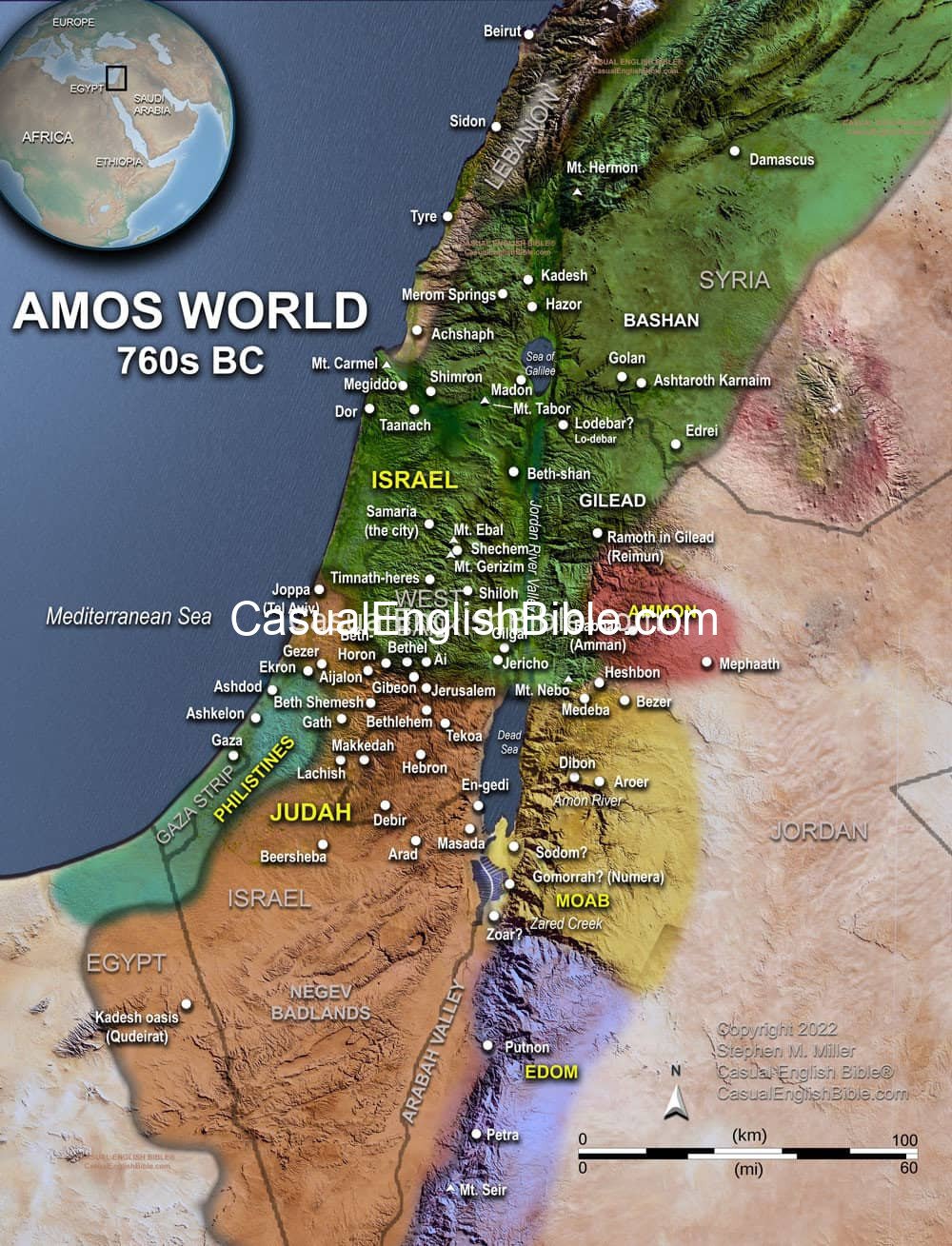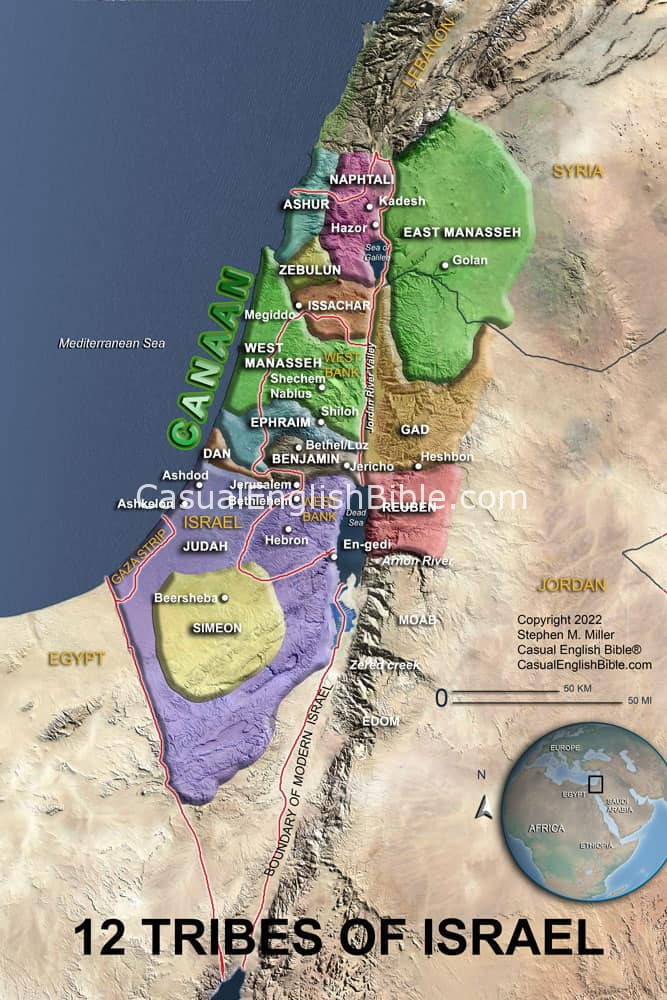Amos 3
Judgment: Why Israel should see it coming
A few pointed questions
1Pay attention, people of Israel.This is a message for you from the LORD himself.
It’s for every family I brought here from Egypt.
2In all this world, I picked you alone.
Your family, out of all the families on earth.
Now I’m holding you accountable for what you did wrong.
And I’m going to punish you for it.
3Can two people take a walk
If they can’t agree on where to meet? [1]
4Does a lion roar in the woods
Before it sees a prey? [2]
Does a young lion growl in the lion’s den
Before it snatches some meat?
5Does a bird get caught in a trap
When there’s no trap to catch a bird?
Does a trap spring on its own
When there’s nothing to spring the trap?
6Can a trumpet’s alarm blow in a city
Without alarming the people in town?
Can disaster strike a city
If the LORD didn’t call the strike?
7It’s a fact that the LORD does nothing
Without alerting his servants, the prophets. [3]
8When the lion roars,
Who wouldn’t listen in fear?
When the LORD God speaks
Who wouldn’t report what he says? [4]
Invaders are coming to Israel
9Give this message to rulers of Assyria [5] and Egypt:Come to Israel’s Samaritan [6] hills and see
Injustice, exploitation, and angry people.
10The LORD says his chosen people
Can’t tell right from wrong.
They mug and rob and then hide the treasure
In gated towns with guarded walls.
11Because of this, the LORD God says,
An enemy is coming to sweep through your land,
Destroy your defenses,
Pillage your palaces,
And steal the treasures you stole.
You’re dead in your bed, killed on your couch
12The LORD says this:If a shepherd tries to rescue a sheep from a lion
He might save two legs and yank out an ear.
That’s what will happen in Israel’s Samaria
To those resting nicely on couches and beds.
You might save a pillow or a piece of a leg.
But everything else is dead.
13Listen to me, says the LORD God,
The LORD of everyone.
Report what I say against Israel,
The people descended from Jacob.
14When I punish Israel,
I’ll destroy the counterfeit altars at Bethel. [7]
I’ll snap off the horns [8] at the corners.
You can watch them drop in the dirt.
15I’ll tear down your winter houses.
I’ll tear down your summer houses.
I’ll demolish your ivory palaces.
I’ll destroy your massive mansions.
You’re going to run out of real estate.
This message comes from the LORD.
Footnotes
Amos asks a series of rhetorical questions with obvious answer. The point of the questions isn’t as obvious. But the final question, scholars seem to agree, is the best clue. Amos is reporting a message from God and he’s not getting the response he should. Perhaps the point is that the people should be taking him seriously, when they’re not. Or maybe the point is that the people expect God to do only good things for his chosen people. And not punish their evil behavior. Their surprise at what’s coming will be because they forget their agreement with God, which has a long and severe penalty clause (Deuteronomy 28:16-28).
Lions hunt quietly and kill loudly.
Perhaps with some exaggeration, Amos’s point might be that he isn’t delivering his own message, like some disgruntled citizen from another country—Judah, in his case. He was delivering God’s message to the northern Jewish nation of Israel.
More literally, “who wouldn’t prophesy.”
Hebrew documents say “Ashdod,” a leading city of Philistines. But an ancient Jewish translation of their Bible into Greek, called the Septuagint, uses “Assyria.” The Septuagint was the first translation of the Hebrew Bible into Greek, an international language of New Testament times, much like English is today. Translators began working on that before the birth of Jesus. Assyria and Egypt were famous for their own injustice, exploitation, and unrest. Amos’s implication seems to be that what Israel is doing is worse.
Samaria was capital of the northern Jewish nation of Israel. Israel broke in half after King Solomon died. Northern tribes became known as Israel. Southern tribes took the name of the largest tribe: Judah.
Moses warned the people that once they arrived in their future homeland, they were to worship in only one central location: “The LORD your God will choose one worship center for the entire nation of Israel. That’s where all your tribes will come to worship” (Deuteronomy 12:5). Jerusalem became that site, in Judah’s tribal territory along the border with Benjamin’s tribe (2 Chronicles 6:6). Northern rulers of Israel didn’t want their people returning to Jerusalem to worship. They feared reunification under one king from David’s descendants. And it wouldn’t be them.
Horns on the four corners of the altars apparently helped hold the wood and the sacrificial meat in place.
Discussion Questions
- Sorry, there are currently no questions for this chapter.











